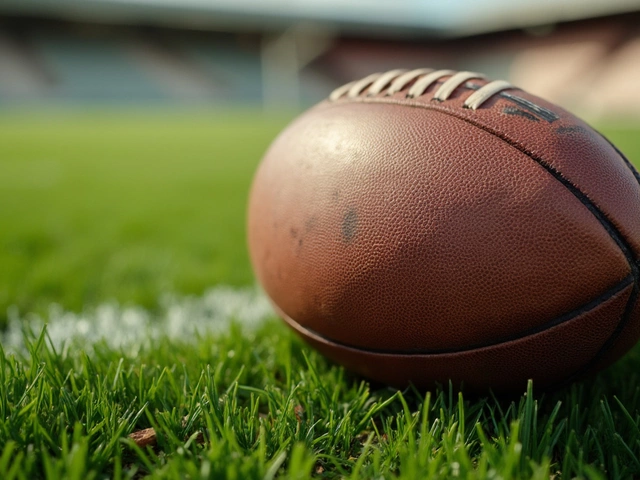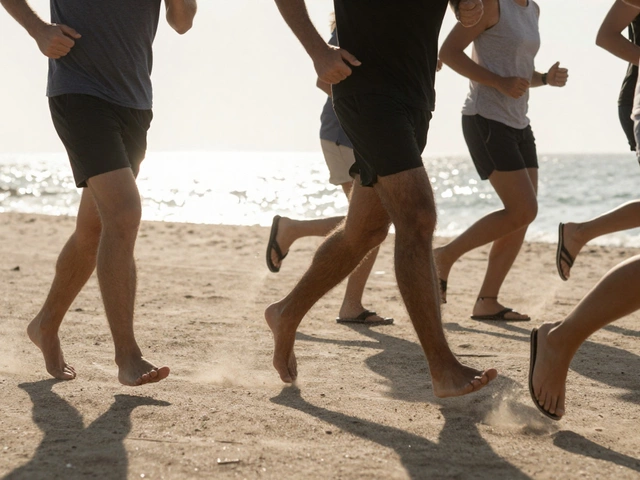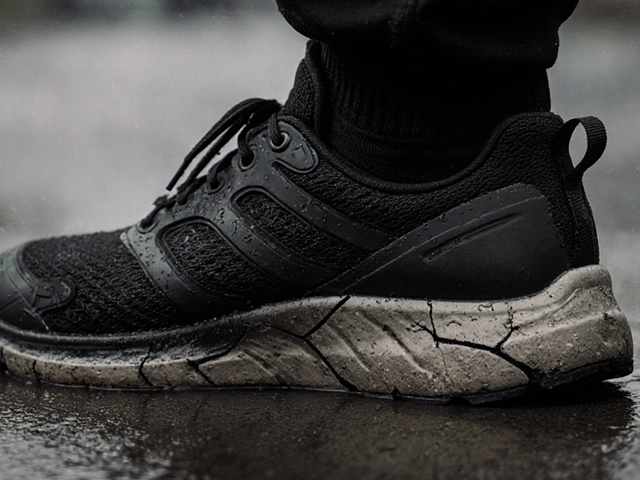Best Foods for Optimal Gym Performance and Recovery

When it comes to hitting the gym, what you eat plays a crucial role in determining how effective your workout will be. Whether you're lifting weights, hitting the treadmill, or practicing yoga, the right nutrition can make all the difference. It's not just about building muscle or losing weight — it's about fueling your body properly for the demands you are going to place on it.
This article aims to dive into the foods that can boost your energy, enhance performance, and speed up recovery after an intense exercise. We'll guide you through the ultimate list of nutritional choices that align with different workout goals and intensity levels. Read on to uncover how you can tailor your diet to achieve optimal results in the gym.
- Importance of Nutrition for Fitness
- Pre-Workout Fuel: What to Eat and Why
- Best Foods for Post-Workout Recovery
- Hydration: The Often Overlooked Component
- Eating for Different Types of Workouts
- Common Mistakes to Avoid
Importance of Nutrition for Fitness
The role of nutrition in fitness cannot be overstated. When you exercise, your body burns calories while breaking down and rebuilding muscles. It is a meticulous process that requires the right kind of fuel, which comes from the foods you eat. Without the proper nutrition, you're essentially fueling your workouts on empty, which can lead to fatigue, decreased performance, and even injury over time. Think of food as the building blocks of a successful fitness routine. The right nutrients prepare your body for optimal performance and also play a critical role in recovery, directing how effectively your body repairs muscles and replenishes energy stores.
It's essential to understand that every macronutrient—carbohydrates, proteins, and fats—plays a unique role in your body's functioning during exercise. Carbohydrates are the main source of energy during high-intensity workouts. They break down into glucose and are stored in muscles and liver as glycogen, which becomes the primary energy during intense exercise. Proteins, meanwhile, are vital for muscle repair and growth. After you've strained muscles during a workout, proteins help rebuild and strengthen those fibers for better performance next time. Fats are crucial as well; they provide a concentrated energy source for longer, less intense workout sessions and are necessary for absorbing certain vitamins crucial for overall health.
"The best exercise routines can only go so far without a diet to match," says registered dietitian Dr. Linn Stevenson. "Food is not just fuel. It is information. It talks to your DNA and tells it what to do."
In addition to macronutrients, micronutrients—vitamins and minerals—hold significant importance. Some of these, like calcium and vitamin D, are essential for bone health, while others, like iron and health-promoting antioxidants, support muscle function and recovery. Even the simple act of staying hydrated is an essential part of gym nutrition. When you sweat, you not only lose water, but also electrolytes, which are necessary for nerve function and muscle contractions. Dehydration can quickly sap strength and endurance, while optimal fluid balance can vastly improve exercise performance and recovery.
There’s also increasing recognition of the timing of your nutrition, often referred to as nutrient timing or meal timing. Consuming protein and carbohydrates shortly after your workout can enhance muscle protein repair and synthesis, promoting recovery. Each body is different, and understanding your own needs can require some trial and error until you find the ideal balance that complements your workout foods strategy and personal fitness goals.
The science of nutrients is continually advancing, but the core principle remains: Listen to your body and fine-tune your nutrition to meet the demands of your exercise routine. Balancing nutrients doesn't just mean choosing the right kinds of food; it means tailoring them at the right times to manifest extraordinary results.
Pre-Workout Fuel: What to Eat and Why
Getting the most out of your gym sessions often comes down to what you eat before stepping onto the floor. The right pre-workout nutrients can profoundly affect your strength, endurance, and mental clarity. Think of your body like a high-performance vehicle; without the right fuel, it won't run as efficiently. Ideally, you want foods that provide a steady stream of energy, avoid mid-workout slumps, and prepare your muscles for the challenges ahead.
Carbohydrates are key here—they're the primary source of energy for your muscles. When you eat carbs pre-workout, they break down into glucose, which your body uses for immediate energy. The timing of your meal can influence its effectiveness. Consider consuming food about 1-3 hours before your workout. This window allows your body to digest and start converting nutrients into energy. A small study from 2021 found that individuals who consumed a carb-rich meal three hours prior to a workout outperformed those who ate right before. However, individual digestive rates can vary, and it's crucial to find what timing works best for your body.
Protein also plays a significant role in pre-workout nutrition. While carbs supply the energy, protein serves to prime your muscles for growth and repair post-exercise. Consuming a balanced meal with both macronutrients can set the stage for remarkable gains in strength and size. Some excellent options include a chicken sandwich on whole grain bread, oatmeal with a scoop of protein powder, or a simple smoothie with Greek yogurt and fruits. These meals provide a balanced intake of both carbs and protein, making them optimal for energizing your fitness efforts.
"The best pre-workout meals are those that are easily digestible," says Dr. Sarah Larson, a renowned sports nutritionist. "You want to avoid heavy, greasy foods that can weigh you down and instead opt for meals high in carbohydrates and moderate in protein."
Fats, while an essential part of a balanced diet, should be limited right before a workout. They digest slowly, which might lead to sluggishness and discomfort during exercise. Instead, focus on foods that your body can break down quickly, providing immediate energy. Hydration should also not be neglected; it's equally critical as eating. Dehydration, even if mild, can hinder overall gym performance, causing fatigue and cramps. Ensure adequate water intake leading up to your gym session to keep your body firing on all cylinders.
Gym nutrition is not just about what you eat but also when you eat. Discovering the best timing and combination of nutrients for your body can be a process. Start by experimenting with different foods and eating times, noting how each variation affects your workout. Ultimately, the goal is to find a consistent meal plan that leaves you feeling strong, focused, and ready to conquer whatever fitness goals you've set for yourself.

Best Foods for Post-Workout Recovery
After an intense gym session, your body yearns for replenishment and nourishment to repair and grow. Consequently, what you eat after your workout is crucial in restoring your body's energy reserves, repairing muscle tissues, and reducing muscle fatigue. This post-exercise window is often termed the 'anabolic window,' where optimal nutrition can significantly enhance recovery. Foods packed with protein and carbohydrates should be at the forefront of your recovery strategy. Consider a balanced approach where you consume lean proteins like chicken or fish, paired with complex carbohydrates such as sweet potatoes or brown rice. These combinations help rebuild your glycogen stores and promote muscle protein synthesis. Beyond the traditional pairings, include some healthy fats too, like those found in avocados or nuts, which support joint health and reduce inflammation.
Protein is undoubtedly the hero when we talk about muscle recovery, but not all protein sources are the same. Opt for high-quality proteins like those found in Greek yogurt or cottage cheese, which offer not just protein but also essential amino acids. These amino acids are the building blocks that your muscles need to repair microscopic tears caused by exercise. If you're after a plant-based source, lentils and chickpeas are excellent options, providing ample protein while also serving a substantial dose of fiber. Fiber aids digestion, ensuring that the nutrients are absorbed efficiently.
Carbohydrates play an equally vital role in post-workout recovery. They replenish glycogen stores that are depleted during exercise. You have a range of choices, from bananas, oats, and quinoa, to fruits like berries, which do double duty offering vitamins and antioxidants that reduce oxidative stress in your muscles. Research shows that consuming carbs and protein together after a workout helps increase the rate of muscle glycogen synthesis and recovery, accelerating your readiness for your next session. A simple yet effective snack is a banana with peanut butter, providing a quick dose of both macronutrients.
While we often focus on what to eat, we mustn’t forget the power of hydration in recovery. Water plays an integral role in digestion, nutrient absorption, and muscle function. After a workout, it's crucial to replenish any lost fluids to support recovery. Some experts also recommend electrolyte-rich drinks or coconut water to restore essential minerals. According to Nancy Clark, a prominent sports nutritionist, "Rehydration is a pivotal aspect of recovery, ensuring that all the nutrients can reach their destinations efficiently."
Flexible enough to adapt to various dietary needs, this approach to post-workout nutrition will help not only in muscle recovery but will enhance future performance. Embrace this opportunity to refuel to achieve the best possible results from your hard work in the gym.
To provide a more structured guideline, here's a table showcasing an example of what a post-workout meal could consist of:
| Food | Type | Benefits |
|---|---|---|
| Grilled Chicken Breast | Protein | High-quality protein for muscle repair |
| Sweet Potatoes | Carbohydrate | Restoration of glycogen levels |
| Spinach Salad | Vegetables | Vitamins and minerals for overall health |
| Almonds | Fats | Reduces inflammation and supports joints |
| Water/Coconut Water | Hydration | Replenishes lost fluids and electrolytes |
Embrace these nutritional strategies after every workout to ensure faster recovery, improved performance, and, most importantly, sustain your fitness journey with vitality and vigor. The choice of foods might seem elementary, yet their impact can elevate your fitness experience and bring about remarkable results over time. Take the small steps towards smarter nutrition, and witness its magical contribution to your overall wellbeing.
Hydration: The Often Overlooked Component
When people discuss gym nutrition, hydration might not always top the list. Yet, it's undeniably a vital aspect of maintaining peak fitness and performance. Water is more than just a drink—it plays a fundamental role in energy, delivering nutrients to muscles and regulating body temperature. During workouts, your body loses water through sweat, which can quickly lead to dehydration if not replenished. Early signs of dehydration include fatigue, dizziness, and an increased heart rate, all of which can hinder your gym session. Proper hydration acts as the oil that keeps the engine running smoothly, ensuring that your body functions efficiently under stress.
The American College of Sports Medicine suggests drinking around 500 to 600ml of water at least four hours before exercise. Then, consider another 200 to 300ml about 30 minutes prior to your workout to top up. This keeps you in a hydrated state ready for action. During exercise, aim for about 200ml every 20 minutes, though more might be needed depending on temperature and intensity levels. It’s essential to follow these guidelines to stay at your best. Post-workout, rehydrating with 1.5 times the fluid lost during exercise helps balance your body’s requirements.
"An ounce of performance is worth pounds of promises," states renowned strength coach Louie Simmons, emphasizing how hydration can impact results in the gym.
Interestingly, maintaining proper hydration helps in muscle recovery too. After strenuous activity, your muscles need fluids to repair effectively and grow stronger, confirming why a good hydration strategy can't be overlooked. Various electrolytes, like sodium and potassium, lost during perspiration, need replacement, much like fuel in a vehicle after a long drive. For those who engage in intense exercise sessions exceeding an hour, sports drinks or electrolyte tablets can offer the necessary components. However, for most, pure water suffices in keeping them fit and functional.
Recent studies show that even mild dehydration can affect cognitive function, alter mood, and impair performance, highlighting its critical importance not just physically but mentally. An often-cited study from the journal “Physiology of Sport and Exercise” found participants who didn’t maintain adequate fluid intake experienced a decrease in endurance and strength metrics during crucial exercise routines. By making hydration—whether it's water or another suitable beverage—an integral part of your fitness diet, you'll be more prepared to handle the physical demands that each gym session brings.
In a breakdown of sweat loss, a fascinating table by the National Athletic Trainers’ Association details that depending on personal factors like body size, gender, and workout intensity, sweat rates can range drastically:
| Weight Loss | Fluid Intake Required |
|---|---|
| 1 pound (0.45 kg) | Approx. 16-20 oz (500-600 ml) |
| 2 pounds (0.9 kg) | Approx. 32-40 oz (1-1.2 L) |
This highlights the tailored approach necessary in managing your hydration strategy. When planning your fitness diet, don't underestimate the power of a simple, refreshing glass of water. It's a small action that supports bigger goals, offering a hidden edge in both performance and recovery. The takeaway? The foundation for the best gym results isn’t just proteins and carbs, but the clear, life-giving stuff that hydrates and fuels your body for every pound you lift and every mile you run.

Eating for Different Types of Workouts
Dietary choices can be a game-changer when aligning them with specific workout regimes. High-intensity interval training (HIIT), strength training, and endurance exercises each have unique nutritional demands. For instance, a high-carb diet might be your ally when preparing for a marathon, providing the sustained energy needed over long distances. On the flip side, someone focusing on building muscle through weightlifting will benefit more from protein intake before and after workouts to aid muscle repair and growth. It's fascinating to consider how adjusting the macronutrient balance can elevate performance in various disciplines.
For those engaged in activities like HIIT, which rely on bursts of intense energy, carbohydrates become vital. The body uses glycogen stored in the muscles as the preferred energy source during such exercise. Consuming good carbs, like whole grains or fruits, an hour before can lead to significant improvements in performance. Conversely, if your focus is strength training, a meal rich in protein and some healthy fats can sustain your energy and start the recovery process before you even leave the gym. Foods like Greek yogurt, nuts, or a protein shake with added vegetables can be an optimal choice prior to lifting weights.
Long-distance runners or cyclists might opt for 'carb-loading,' a strategy used to fill glycogen stores before such stamina-demanding workouts. Studies show that beginning a race with maximum glycogen storage can improve endurance by up to 20%. A meal that combines carbohydrates and proteins, like chicken with rice or pasta with legumes, provides the needed reserves and a slow release of energy to fuel long sessions.
"For endurance athletes, carb-rich meals two hours before exercise can improve stamina," says Dr. Lisa Dorfman, a renowned nutritionist and endurance athlete.
After any workout, the recovery process is crucial. Post-exercise meals should be tailored to the type of workout. Endurance athletes require more carbohydrates post-exercise to replenish depleted glycogen stores, whereas strength trainers benefit from protein intake to facilitate muscle repair. Including a mix of protein and carbohydrates post-workout gives your body the resources needed for recovery. A smoothie with whey protein and a banana or a turkey wrap can be quick, effective options.
Let's not forget hydration, which is crucial across all workout types. Dehydration can impair both performance and recovery. With intense workouts, replenishing electrolytes too becomes important. Drinks that include sodium and potassium can be particularly beneficial during long workouts in hot conditions. Crafting a well-rounded meal plan that takes these factors into account will not only bolster your workouts but also enhance recovery. Understanding these nutritional strategies can lead to significant improvements in not just performance, but also in the overall enjoyment of your fitness journey.
Common Mistakes to Avoid
When we're determined to make the most out of our gym sessions, sometimes we inadvertently fall into traps that can hinder our progress. One common mistake is overlooking the timing of meals. Those who eat a large meal right before hitting the gym often feel lethargic as the body diverts energy towards digestion, impacting overall performance. It's essential to time your meals properly, giving your body enough time to digest and convert food into energy before embarking on an intense workout. Aim to eat a balanced meal about two to three hours before exercise to allow nutrients to settle.
An equally important mistake involves misunderstanding the role of hydration, which significantly impacts gym performance. Many fitness enthusiasts underestimate the amount of water needed to keep their bodies functioning optimally during a workout. Dehydration can lead to muscle fatigue and decreased coordination, affecting both the quality and duration of physical activity. Ideally, you should begin hydrating throughout the day leading up to a gym session, drinking at least 16-20 ounces of water an hour or two before exercise.
Another stumbling block is the exclusive focus on protein intake, often at the expense of other essential macronutrients. While protein is critical for muscle repair and growth, neglecting carbs can leave you feeling sluggish, as they are your body's primary energy source. It's a common misconception that a low-carb diet is ideal for fitness. In reality, for those engaging in high-intensity activities, forgetting to refuel with carbohydrates can dampen energy levels and overall workout quality. An ideal fitness diet involves a balanced intake of protein, carbohydrates, and fats tailored to your specific workout type and goals.
Finally, many people make the mistake of maintaining a monotonous diet, consuming the same foods repeatedly. This limits the variety of vitamins and minerals essential for a well-rounded nutritional profile. Consistently eating a diverse range of foods helps ensure that the body receives all necessary nutrients to support energy levels and muscle function. In dietary terms, variety truly is the spice of life. Exploring different foods within the categories of lean proteins, healthy fats, and complex carbohydrates can also help to keep meals enjoyable and sustainable in the long run.
As sports nutritionist Nancy Clark once said, "No single food will make you successful at sports, just like one workout won’t make you fit. Your overall eating style is what’s going to impact your long-term performance."
In sum, by addressing these frequent yet easily avoidable errors, you can create a gym nutrition plan that not only supports your immediate fitness goals but also fosters a healthier lifestyle overall. Avoid these pitfalls, and find that with the right nutrition and hydration, your gym days might just be the highlight of your week.




